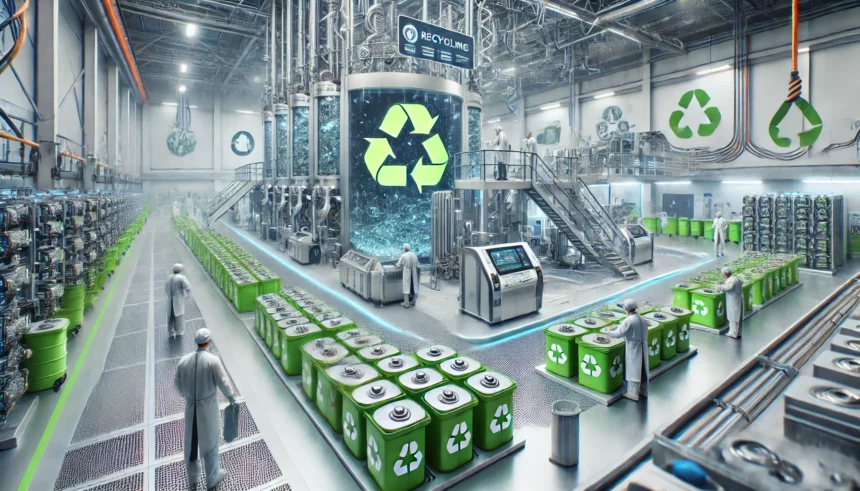The rise of electric vehicles (EVs) is reshaping our world. Governments globally are pushing for reduced carbon emissions, spurring the automotive industry to move from fossil fuels to electric power. This significant shift is fueled by substantial investments in EV production and battery manufacturing, heralding a new era in transportation and energy storage.
However, this shift brings new challenges, especially concerning the materials needed for battery production. Critical minerals like lithium, nickel, and cobalt are essential for lithium-ion batteries, which power everything from cars to grid storage systems. While these batteries provide a cleaner alternative to internal combustion engines, their production and disposal pose environmental issues that could undermine their benefits.
Why Recycling Matters
Recycling is a key part of the clean energy transition. Without effective recycling strategies, we risk swapping one environmental problem for another—trading fossil fuel extraction for unsustainable mining practices. To truly benefit from the electrification of transport and other sectors, we need recycling solutions that are both efficient and environmentally friendly.
Currently, most lithium-ion batteries are not recycled, leading to a significant loss of valuable materials and increased mining demands. This is unsustainable, especially as the demand for these batteries is set to skyrocket. Recycling can help bridge the gap between supply and demand by recovering critical minerals from used batteries and manufacturing scrap, reducing the need for new mining operations.
Challenges with Traditional Recycling Methods
While the need for recycling is clear, current methods pose significant challenges. Traditional recycling processes like pyrometallurgy and hydrometallurgy are energy-intensive and generate considerable waste and emissions. For instance, hydrometallurgical processes produce four to five times as much sodium sulfate as a byproduct as valuable materials recovered, leading to environmental pollution and increased landfill waste.
The production of sodium sulfate and other waste materials highlights a major flaw in current recycling practices—they can create as many environmental problems as they solve. Such methods do not align with the principles of a circular economy, where the goal is to minimize waste and maximize material reuse.
Moving Towards Closed-Loop Recycling
In response to these challenges, there is a growing emphasis on developing closed-loop recycling systems. These systems aim to recover and reuse every possible material, reducing waste and emissions to the greatest extent possible. Closed-loop processes are designed to be sustainable and cost-effective, aligning with global efforts to reduce environmental impact and promote economic efficiency.
One promising development in this area is the use of advanced electrochemical processes for battery metal recovery. These technologies, which use electricity instead of heat or harsh chemicals, can effectively separate and purify metals with minimal environmental impact. By eliminating the need for high temperatures and toxic chemicals, these processes reduce both the carbon footprint and the waste associated with traditional recycling methods.
Building Sustainable Infrastructure
As we stand on the brink of a global surge in battery demand, the decisions we make today will shape the future of recycling. It is crucial to invest in sustainable infrastructure that avoids outdated and environmentally harmful practices. By prioritizing the development of clean, efficient, and closed-loop recycling facilities, we can ensure that the growth of the EV and battery industries positively impacts our environmental goals.
This approach not only helps mitigate the immediate impacts of increased battery production but also sets a precedent for future technological developments. Investing in sustainable practices now will accelerate our progress towards net-zero targets and reduce the long-term costs associated with environmental cleanup and resource scarcity.
The Path Forward
The expansion of the EV market and the corresponding need for lithium-ion batteries present both an opportunity and a challenge. Recycling these batteries is not just necessary for resource recovery; it is also crucial for making the clean energy transition truly sustainable. By embracing innovative recycling technologies and building the infrastructure needed to support them, we can ensure that the battery industry supports a circular economy and contributes to a cleaner, greener world.
As the industry evolves, it is essential that all stakeholders—manufacturers, policymakers, and consumers—collaborate to support the growth of sustainable recycling solutions. Together, we can turn the challenge of battery recycling into an opportunity for environmental and economic progress.
















